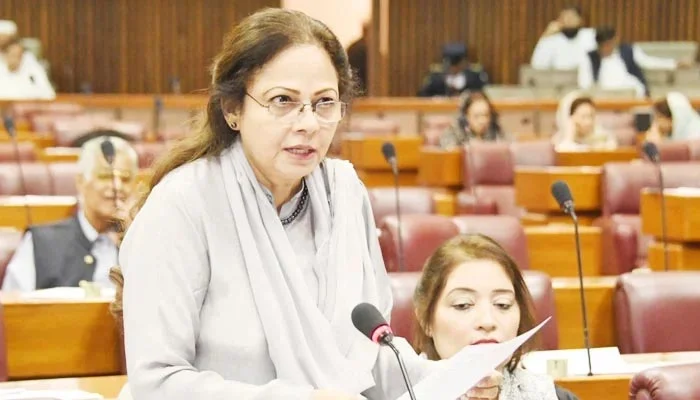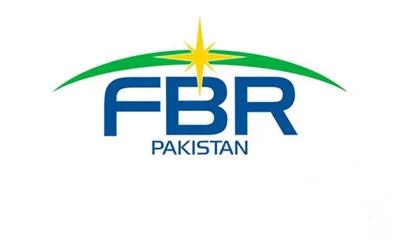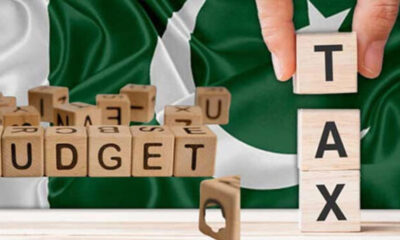- Budgetary framework has been shared with IMF, says minister.
- Dr Pasha says IMF did not accept external financing gap of $4.5bn.
- Adds there is a trust deficit because of PTI govt.
ISLAMABAD: Minister of State for Finance Dr Aisha Ghaus Pasha has ruled out any possibility of contemplating upon any other option — Plan B — in case Pakistan fails to woo the International Monetary Fund (IMF) to revive the stalled loan programme, The News reported Friday.
“Let me say with clarity there were no other options that we are contemplating upon under Plan B in case of no revival of the Fund programme as the government was committed to reviving the IMF programme by completing the pending ninth review,” she said.
During a briefing of the National Assembly Standing Committee on Finance at the Federal Board of Revenue (FBR) headquarters, MNA Ali Pervez Malik questioned Dr Pasha about Plan B in case of failure to revive the IMF programme and said that there was talk about a dollar amnesty scheme to improve dollar liquidity.
The minister further revealed that the Fund did not accept the external financing gap of $4.5 billion assessed by Pakistan.
Dr Pasha disclosed that the IMF was still sticking to its projection of a financing gap of $6 billion for the ongoing financial year against Islamabad’s assessment of $4.5 billion on which assurances extended to the IMF by multilateral as well as bilateral creditors.
She went on to say that the government has shared the budgetary framework for the next fiscal year to satisfy the IMF. However, Pakistan has been waiting for the IMF’s response to share its recent steps to bridge the gap between interbank and open market rates on exchange rates, and assurances on external financing gaps.
It should be noted that a broader agreement on these three major conditions could only pave the way for striking a staff-level agreement.
The minister clarified that the sharing of budgetary numbers is not the part of ninth review as it will be part of the 10th review but Prime Minister Shehbaz Sharif has decided to share the numbers for the revival of the Fund programme.
A senior official of the State Bank of Pakistan informed the NA panel that the permission granted for credit cards from exchange companies to interbank rate would require $70 million to $100 million on average on a monthly basis and recommended the FBR for raising taxes on transactions through credit cards in foreign exchange in the upcoming budget to compress demands for increased foreign exchange requirements.
Dr Pasha said that there was a trust deficit, not because of the incumbent regime, but blamed the last PTI-led government for breaching the IMF agreement by doling out un-targeted fuel and electricity subsidies just before leaving the government in the last financial year.
She said that Saudi Arabia had granted assurances of $2 billion in additional deposits, while $1 billion have been committed by the United Arab Emirates (UAE).
The World Bank committed $450 million through the RISE-II programme loan and $250 million through Asian Infrastructure Investment Bank (AIIB).
The remaining are expected through Geneva pledges in the aftermath of flood assistance.
Pakistan, she said, secured financing assurances of $4.5 billion. Initially, it was planned that out of $6 billion, the government would get assurances on $3 billion before signing the staff-level agreement. She said that the government paid back $3 billion to commercial banks with the understanding that it would get re-financed these loans once the SLA is done.
“We also expect that after the revival of the IMF programme, other avenues of securing dollars will also open up” she added.
The ongoing IMF programme is going to expire on June 30 therefore the time is limited for completion of the pending 9th review under the $6.5 billion Extended Fund Facility (EFF).
If the staff-level agreement is reached by evolving a broader consensus on three contentious issues including external financing, budgetary framework, and sticking to the free market exchange rate then the programme will be revived otherwise the programme will be met with failure.
However, the sources said that Pakistan would be left with no other option but to seek another IMF programme next fiscal year keeping in view debt external repayments of $25 billion.
It does not include the current account deficit and if it is projected in the range of $7-8 billion for the next fiscal year then the total external financing requirements will be stretched up to $32-33 billion in 2023-24.

 Business2 days ago
Business2 days ago
 Business2 days ago
Business2 days ago
 Business2 days ago
Business2 days ago
 Latest News2 days ago
Latest News2 days ago
 Business2 days ago
Business2 days ago
 Latest News2 days ago
Latest News2 days ago
 Latest News2 days ago
Latest News2 days ago
 Business2 days ago
Business2 days ago



















